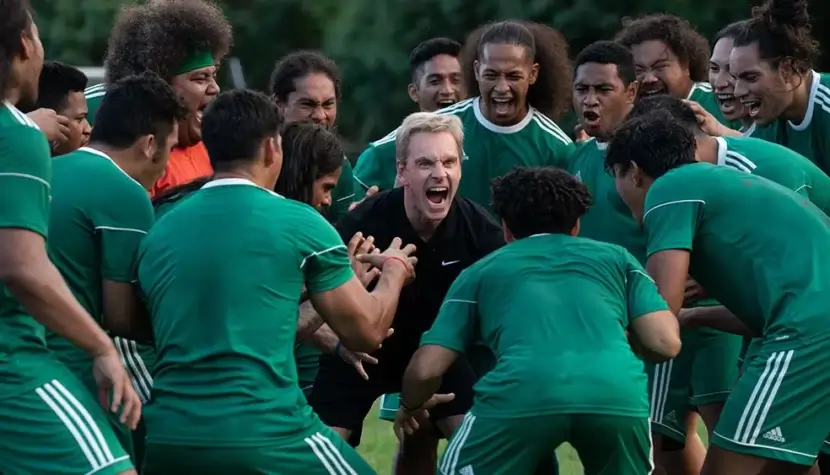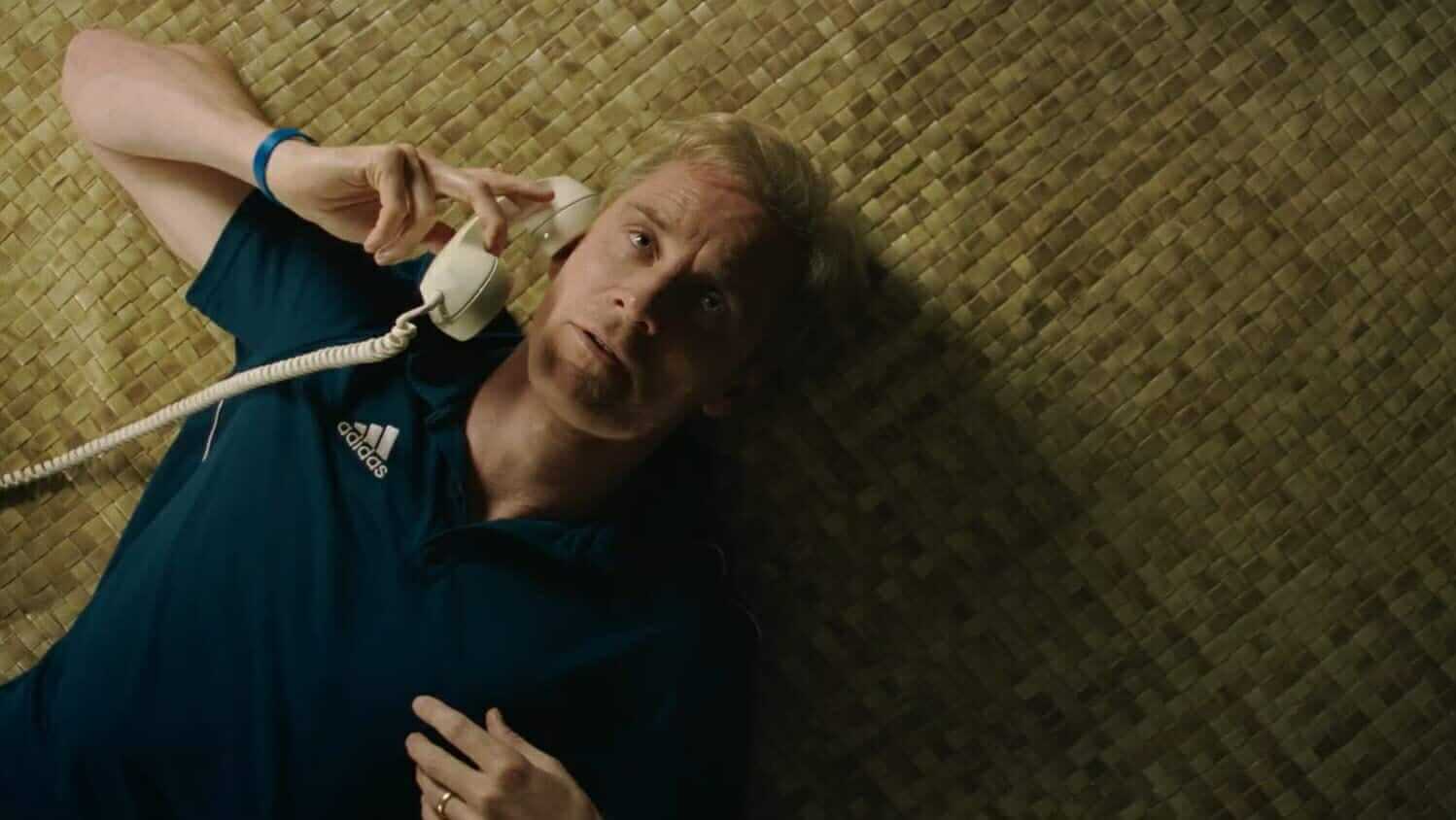NEXT GOAL WINS. The Art of Losing [REVIEW]

In April 2001, a historic event took place. The Australian national team defeated the American Samoa national team by a margin of 31 goals, thus setting a record for the highest victory in the history of international football competitions. Exactly a decade later, Thomas Rongen, a maverick from the United States who frequently lost his job due to temperamental issues, became the coach of the American Samoa team. In just over three weeks, Rongen had to prepare the newly taken over team for a match against the Tonga national team in the World Cup qualifiers. The maximum goal: victory. The minimum goal: at least one goal scored.
Let’s be frank: unlike Thomas Rongen, Taika Waititi did not have an impossible mission ahead of him. The story of the American Samoa national team is a ready-made narrative – with a destined-to-lose, archetypal underdog, and a charismatic individualist at the helm. Similar stories have been seen in movies: Cool Runnings, Eddie the Eagle, even Space Jam loosely fits the mentioned pattern. Moreover, the New Zealander had a documentary dedicated to the whole affair, titled Next Goal Wins, from which he drew extensively, transferring some scenes in a 1:1 ratio. All that was needed was to color the entire story appropriately, enhance it dramaturgically, and voilà – the film was ready.
Indeed, Next Goal Wins, setting aside Waititi’s superhero antics, seems to be the most classic position in the director’s filmography, who has accustomed us to genre deconstruction and breaking away from conventional narrative schemes. He disassembled horror through a vampire mockumentary and approached Holocaust cinema with absurd, sometimes black humor. However, Next Goal Wins is an exceptionally predictable film, based on genre clichés that it seemingly mocks (motivational speech borrowed from Oliver Stone’s Any Given Sunday), but actually shamelessly exploits. However, it does so efficiently and, most importantly, unpretentiously. The viewing experience is like a bus ride, similar to the one Rongen takes shortly after landing on the island. The driver never breaks traffic rules, and the slightly bumpy road to the destination does not surprise at any turn. However, this doesn’t mean the journey can’t be enjoyable.

Especially when such a creative person as Waititi is behind the wheel. The director leaves his signature mark, as usual, through his characteristic sense of humor. Few write secondary characters as funny as the New Zealander – few also appreciate their comedic necessity. Who would Thor be without Hulk and Korg? Or Jojo without Yorki and Captain Klenzendorf? The brightest star of Next Goal Wins is undoubtedly Oscar Kightley, playing Tavita – the president of the Samoan football federation, owner of a local restaurant, and a television operator (the island is small, and the family can’t sustain itself). The actor has excellent comedic timing, feeling most comfortable in Waititi’s imposed convention. Every joke he participates in is twice as funny: Kightley can achieve so much with just his screen presence. Fassbender is not much worse, skillfully playing the card of a tired and frustrated character with a distinctly cynical attitude. Waititi reveals his untapped comedic potential, recently also brought to the surface by David Fincher, although in a much less direct, more ironic way.
“Go out and enjoy the game. I’d rather win 5-4 than 1-0,” Johan Cruyff once said to his Catalan protégés. In the final motivational speech, Thomas Rongen promotes a similar message but removes the crucial word “win” from it, previously repeated in all cases. In the end, “First Goal” turns out to be a film about the art of losing, or perhaps – the skill of getting up after defeat. Not only in sports. The main character learns this during his time on the island, working through the trauma of losing his daughter and separating from his wife, regaining long-lost peace of mind. In this way, Waititi skillfully navigates the problematic “white savior” theme, coming to “exotic” islands to bring about a new order. It turns out that Rongen needs the Samoan team more than the Samoan team needs him.

Michael Fassbender also had to learn to get up from his knees, taking a several-year break from acting after the spectacular failure of “Dark Phoenix,” dedicating himself – like Paul Newman or Jean-Louis Trintignant once did – to car racing. He returned in great style, as evidenced not only by Next Goal Wins but especially by The Killer. Taika Waititi had to master the art of losing as well – his previous film, “Thor: Love and Thunder,” was his first serious artistic failure. Fortunately, in life, just like in football, there is always a second half. Or a rematch on your own field.

